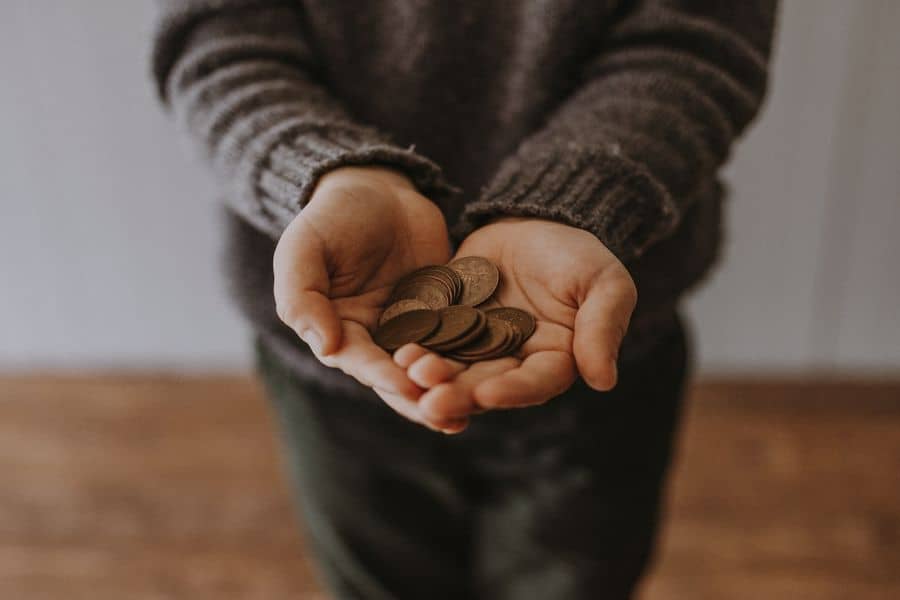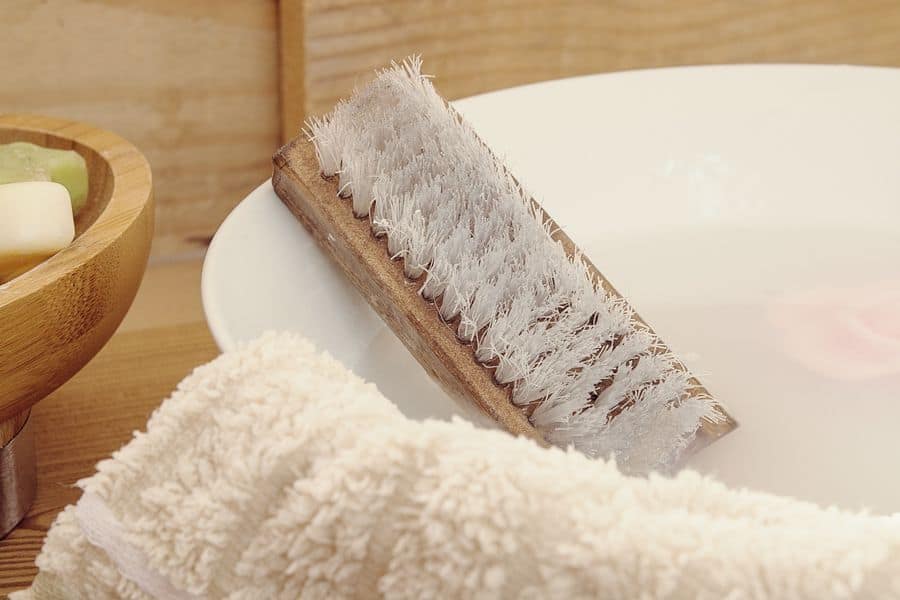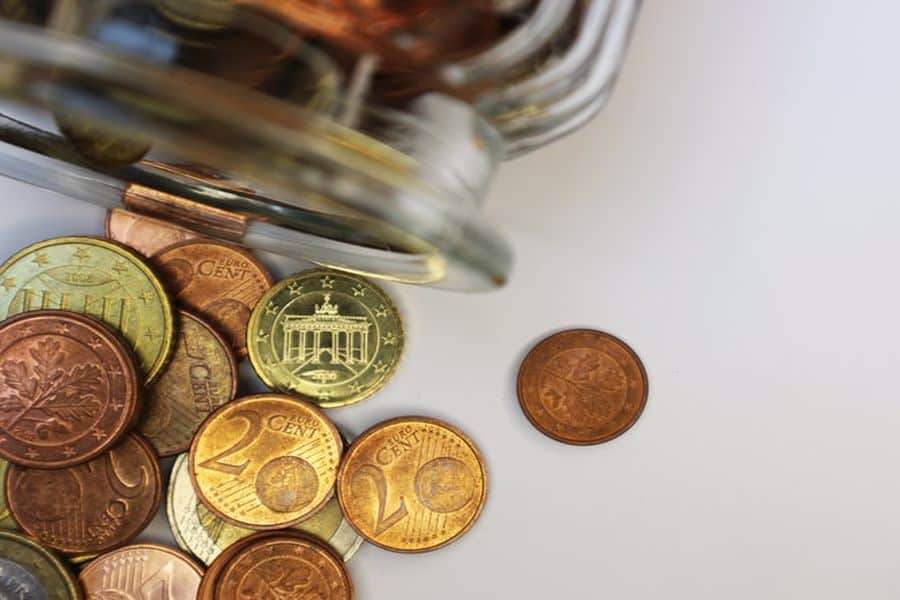As an Amazon Associate we earn from qualifying purchases.
Coins have a long history as a means of exchange. Some coins have been passed down through families, while some collectors collected them for their historical value. However, impurities may be present on the coins. This article will show you how to clean coins with hydrogen peroxide.
How to Clean Coins with Hydrogen Peroxide?
Hydrogen Peroxide can act as both an oxidizing and a reducing agent. It also cleans metal surfaces.

Things You Need
- A bowl
- Tap water and distilled water
- Hydrogen Peroxide
- A soft towel
- A lab apron
- A cleaning brush
- A pair of gloves and safety goggles
- A first-aid box
Step #1: Determine the Strength of Hydrogen Peroxide Needed
Hydrogen Peroxide is the simplest form of peroxide available on the market. It is mildly acidic, and therefore applying the proper concentration of the chemical is necessary.
- Use a concentration of no less than 35% and no more than 40%.
Very mild concentrations will not be able to begin the reaction with the impurities to remove them, while very high concentrations may corrode the material.
Step #2: Take Safety Measures
The Hydrogen Peroxide used in industries is in larger concentrations and can cause serious health hazards. Hydrogen Peroxide is mildly acidic.
The potential health hazards related to Hydrogen Peroxide are why we need to follow certain safety measures while using the chemical at home.
- To avoid accidents, wear safety goggles.
- To avoid chemical contact, wear gloves and a lab apron. Full-body clothing is recommended.
- To avoid chemical inhalation, wear a mask.
Despite the precautions if certain mishaps happen, it is important to keep in mind some steps to be taken:

- If you have inhaled excess of the chemical, go out in the open to take in some fresh air, monitor the oxygen level, and take medical help if needed.
- In case of contact with the eye, continuously apply cold water for at least ten to fifteen minutes (after removing contact lenses if you had them on) and then seek medical help.
- In case of contact with skin, apply water after removing the corroded clothing. Apply any suitable ointment that is available.
- If the burn is severe, use any kind of disinfectant cream or soap and seek medical help.
- If you consume some amount of the chemical, do not try to vomit forcefully. Loosen your clothing and seek medical attention as soon as possible.
Step #3: Begin to Clean the Coins
After you have taken the right concentration of Hydrogen Peroxide and the necessary safety precautions, you can begin with the cleaning process.
- Take a container that is big enough to fit all the coins you wish to clean. There should also be enough space for pouring in Hydrogen Peroxide.
- Before putting the coins in the container, make sure there are no other chemical components in the container or on the coin surfaces.
- If there are any foreign elements, remove them carefully to prevent any chemical reactions between these elements and the Hydrogen Peroxide.
- Then put the Hydrogen Peroxide in this container. Make sure that all the coins are completely soaked under the chemical to initiate the reaction.
- You will see small bubbles begin to appear, indicating the peroxide has begun to wear down the impurity material.
- Let the coins soak in the Hydrogen Peroxide for at least a day. Then carefully take out the coins.
- Apply distilled water to the coins and use a brush to scrape off all the loosely attached impurities. Then carefully dry the coins.
- Again put the dry coins back in the Hydrogen Peroxide and soak them for about half a day. This second soaking enhances the cleaning process.
- Once you are satisfied with the amount of cleanliness, take out the coins, and this time, clean them with tap water.
- Dry the coins in the air, and you could use a hairdryer to speed up the process.
Step #4: Store or Dispose of the Hydrogen Peroxide
Since Hydrogen Peroxide is a hazardous material, it needs to be stored or disposed of safely and systematically.

- Hydrogen Peroxide is a highly flammable chemical, and therefore it should be kept away from sources of ignition or heat.
- If exposed to moisture, it can lose its chemical reactivity and becomes less effective. Therefore keep it away from moisture.
- Since it is mildly acidic, it has a corrosive action on metals and reacts with certain organic compounds and bases. Hence keep it away from such compounds.
- To dispose of Hydrogen Peroxide, follow all the above norms and also the rules laid down by your local government.
This video will help you understand the entire process better.
Frequently Asked Question
Is It Safe to Use Hydrogen Peroxide at Home?
Hydrogen Peroxide is corrosive and can cause health hazards. However, the concentration of Hydrogen Peroxide required for the cleaning goal makes it non-lethal. Wearing proper safety gear protects you from its toxic effects.
Can Hydrogen Peroxide Damage Coin Surfaces?
Hydrogen Peroxide is an acid that corrodes impurities on coin surfaces to clean them. When cleaning the coin with proper Hydrogen Peroxide concentration, it is necessary to check it regularly.
What Kind of Coins Should Be Cleaned with Hydrogen Peroxide?
Coins with historical significance should be left alone. If you must clean them, use milder chemical agents. Hydrogen peroxide can be used safely to clean commonly used coins.
Conclusion
Hydrogen Peroxide is one of the most readily available peroxides and is often used to produce other peroxides. With its oxidizing nature, it can be used to clean various surfaces such as cat trees, bathroom overflow holes, and especially coins. Due to its toxicity, it needs to be handled with care, but it can be handy for cleaning metal surfaces if safely used.
